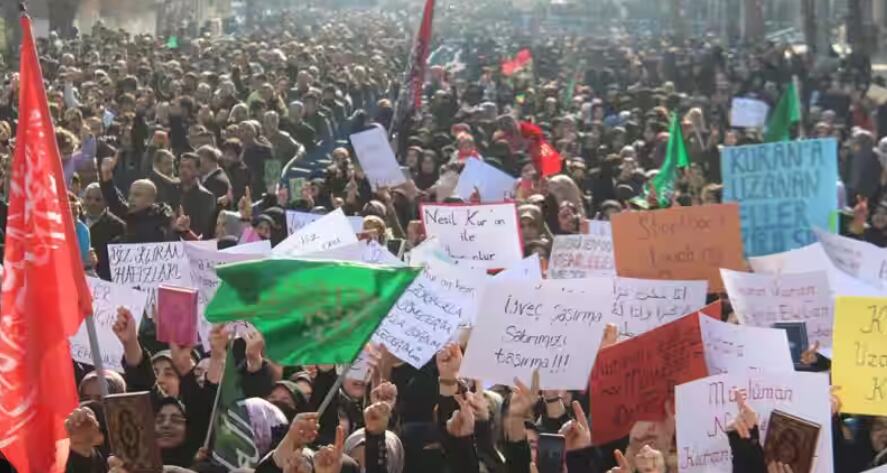Turkey Slams Sweden Over Quran Burning, NATO Accession at Stake
Turkey’s President Recep Tayyip Erdogan has spoken out forcefully against Sweden as the Scandinavian nation awaits Ankara’s approval to join NATO. On Eid al-Adha, the Muslim holiday, Erdogan told members of the ruling AK Party that Western countries must understand that insulting the sacred values of Muslims is not freedom of expression.
Turkey’s President Recep Tayyip Erdogan has spoken out forcefully against Sweden as the Scandinavian nation awaits Ankara’s approval to join NATO. On Eid al-Adha, the Muslim holiday, Erdogan told members of the ruling AK Party that Western countries must understand that insulting the sacred values of Muslims is not freedom of expression.
The statement followed a Quran burning protest in Sweden, which Erdogan deemed “vile” and promised a strong reaction to. The incident has exacerbated tensions between the two nations, as Turkey’s support is necessary for Sweden to gain admission to the North Atlantic Treaty Organization. In the past, Erdogan has criticized Sweden for its stance on refugees, accusing the country of failing to take in adequate numbers.
This time, he accused the nation of failing to adequately protect the religious rights of its Muslim citizens. “It is unacceptable for Europe to embrace the xenophobia, islamophobia and racism that is on the rise and to not take necessary measures,” he said. “The incident in Sweden is a manifestation of this.” The Quran burning protest, which took place on August 25, was attended by members of the Nordic Resistance Movement, a far-right organization.
The demonstration sparked outrage in both Sweden and abroad, with some Muslim leaders calling on the Swedish government to take action against those involved. The Swedish government has condemned the protest, but many feel it has not done enough to protect the religious rights of its Muslim citizenship. The incident has also further strained relations between Sweden and Turkey, which has long been a vocal critic of Western nations for their alleged failure to protect Muslim rights.
The incident has put the issue of Swedish accession to NATO into question, as Turkey’s support is necessary for the country to join the alliance. This has sparked debate among Swedish lawmakers, with some arguing that the country should focus on strengthening its relations with Turkey before attempting to join NATO.
The Swedish government has yet to comment on Erdogan’s statement, but it is expected to address the issue in the coming days. In the meantime, Turkish-Swedish relations remain strained and the question of NATO accession hangs in the balance.




